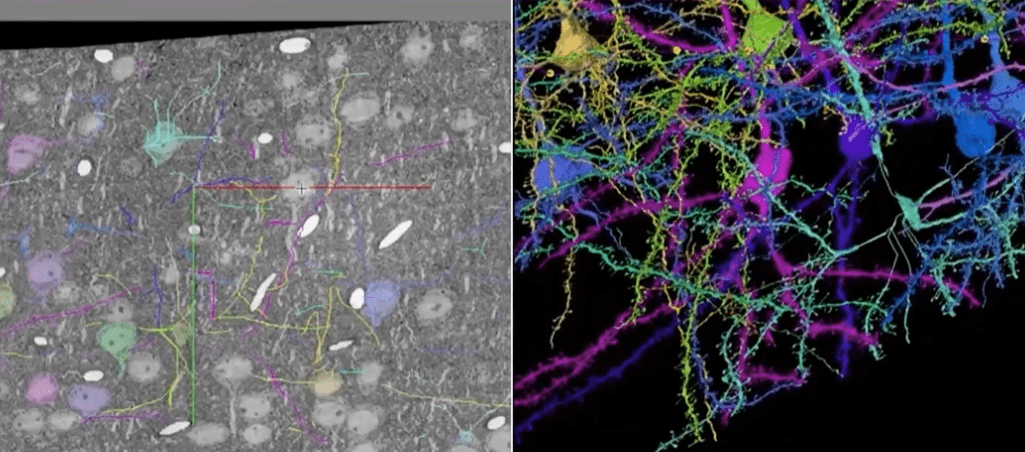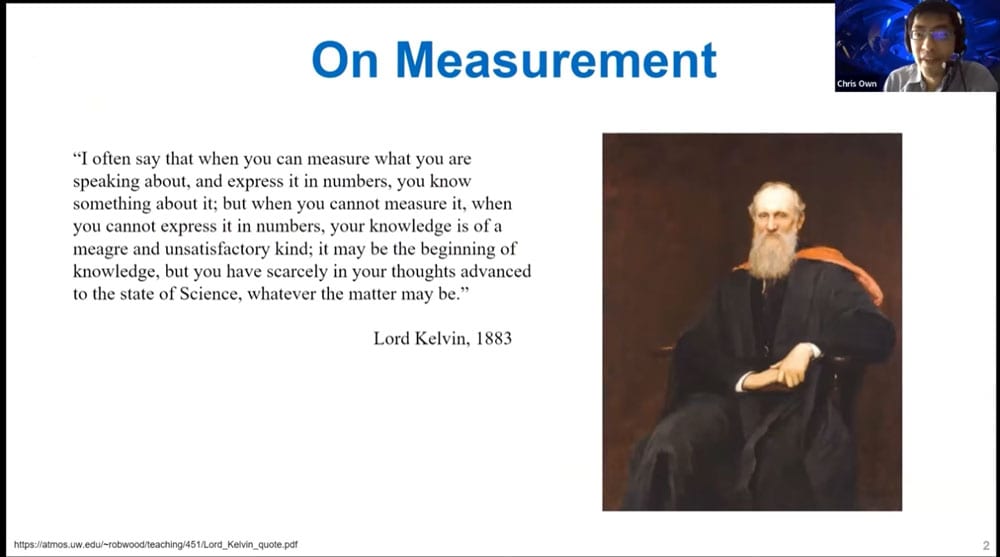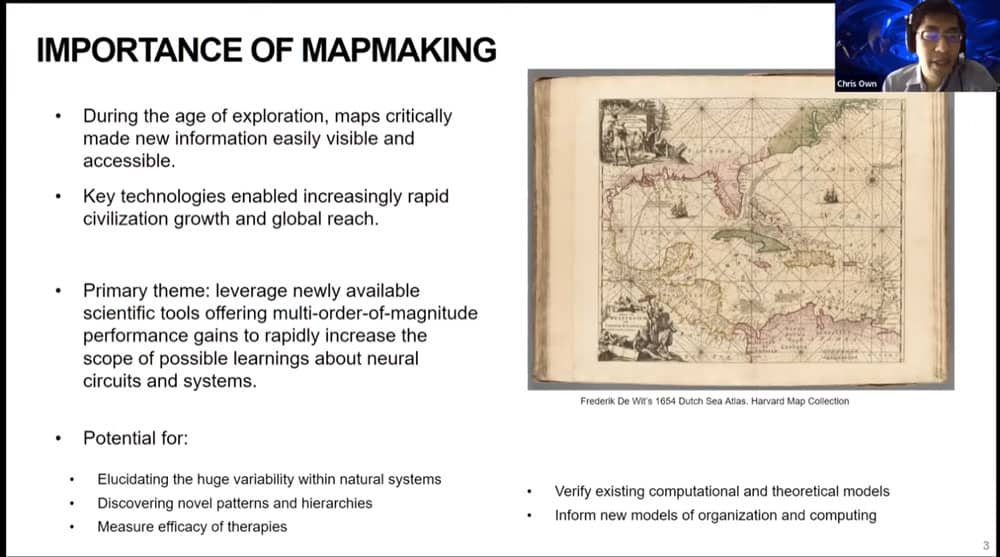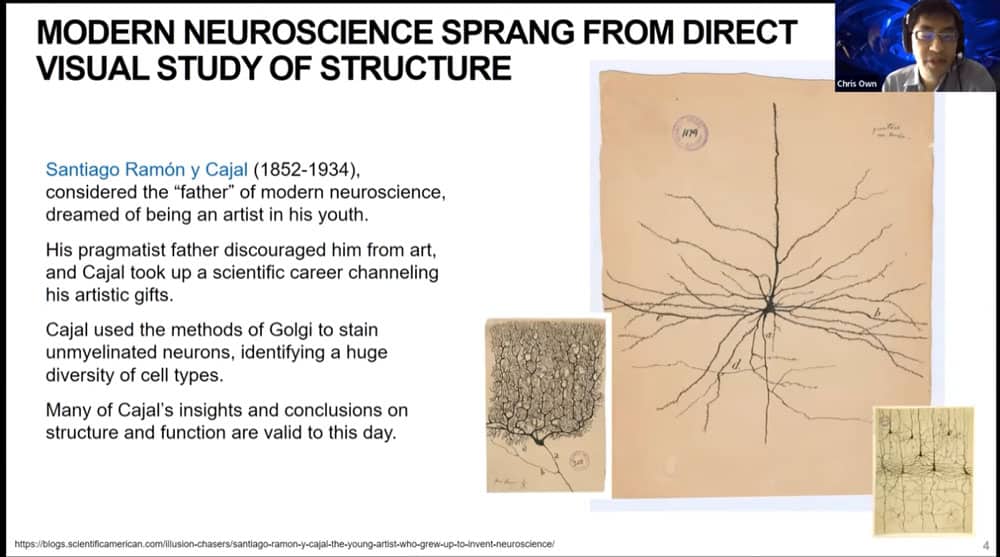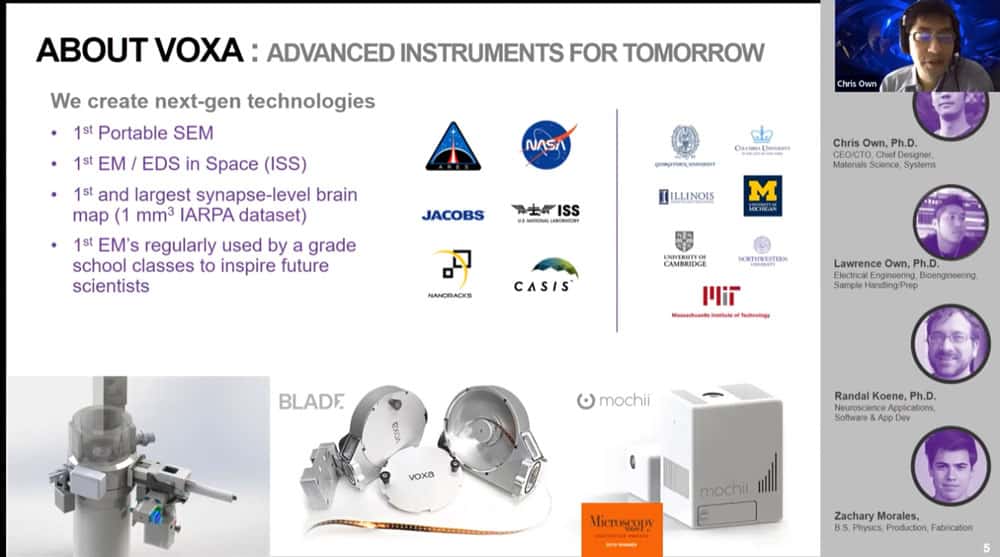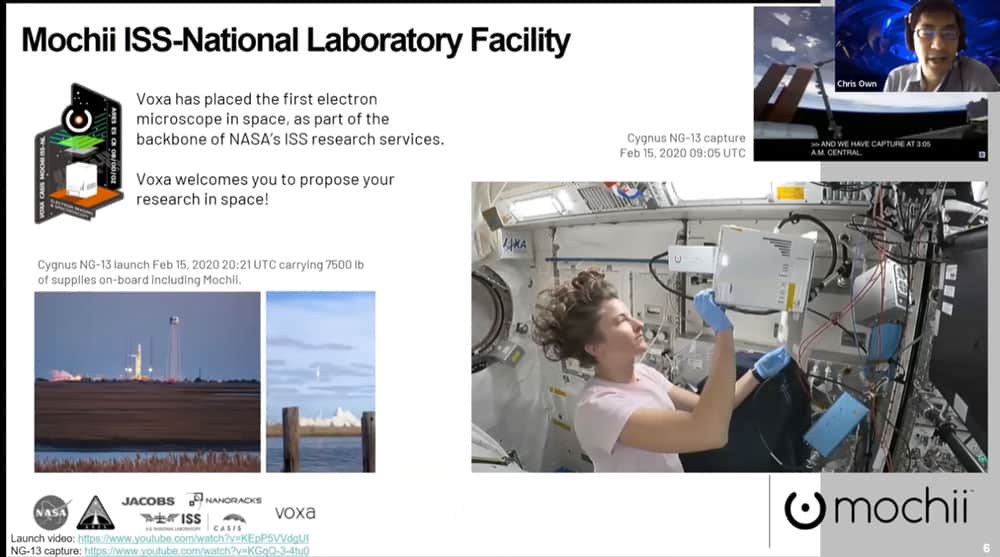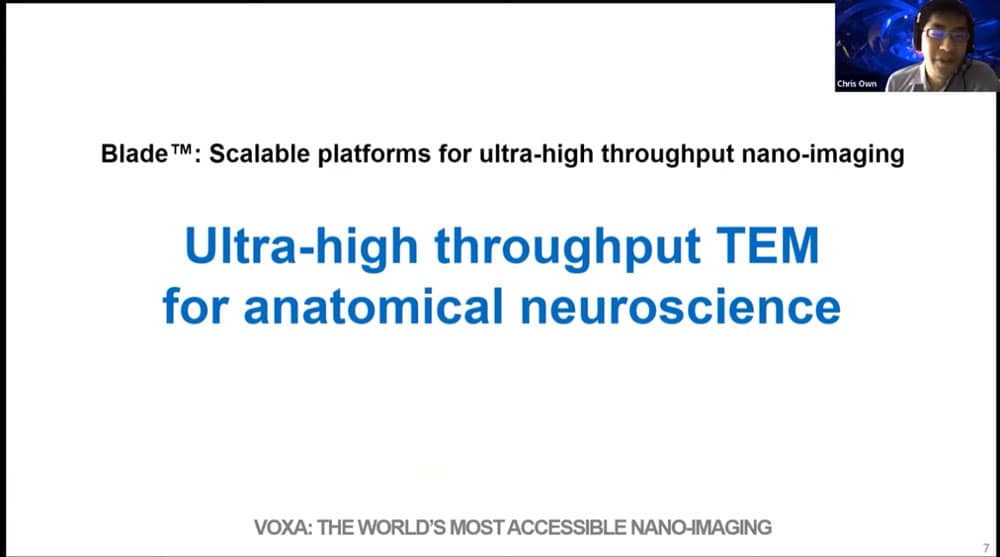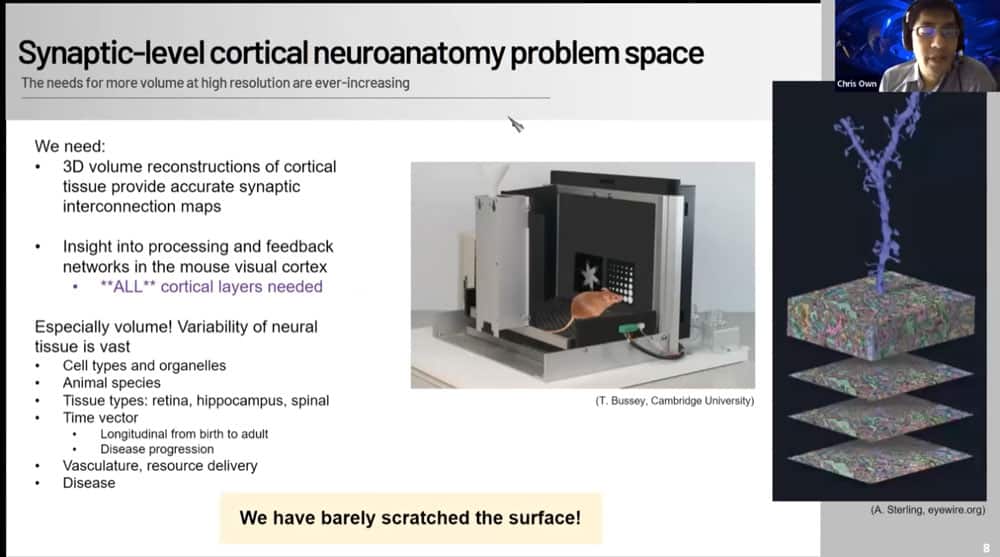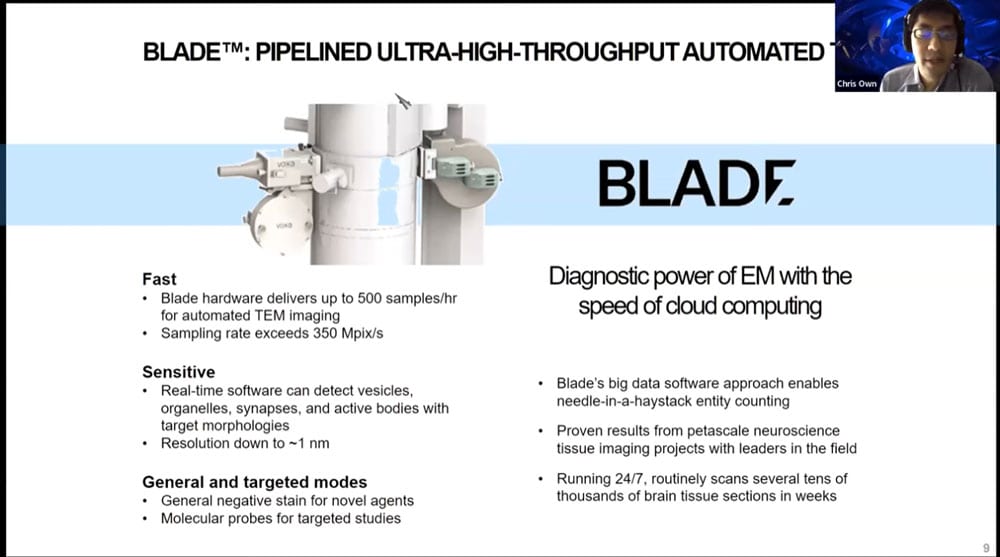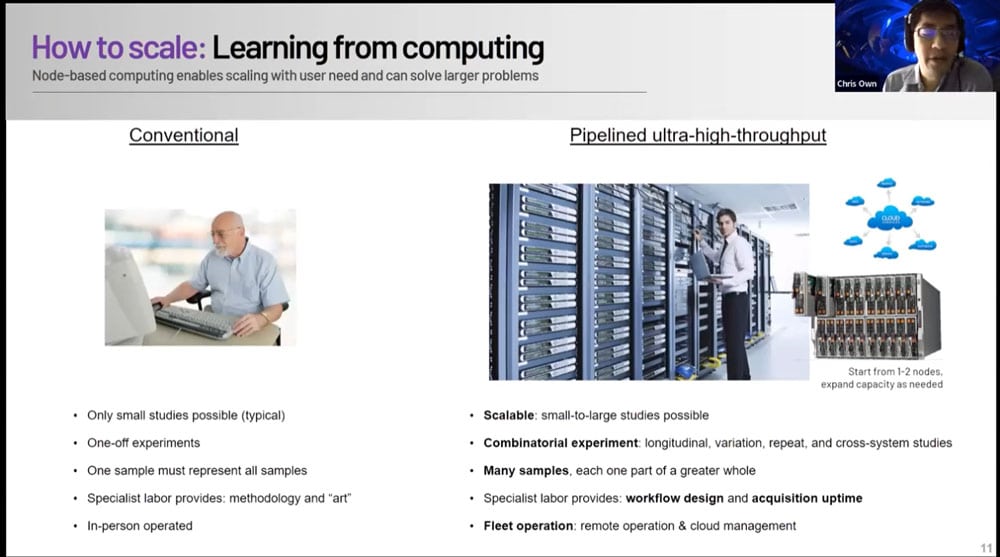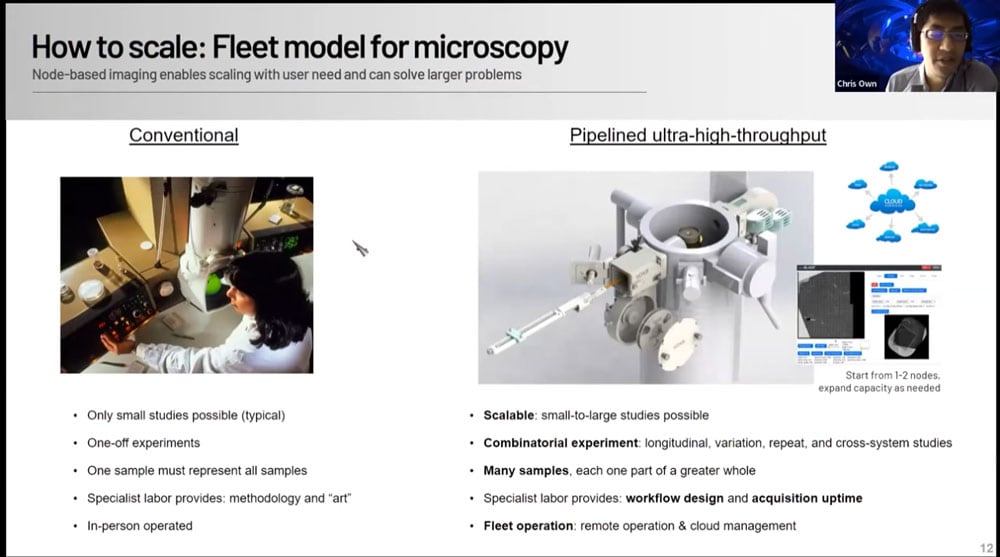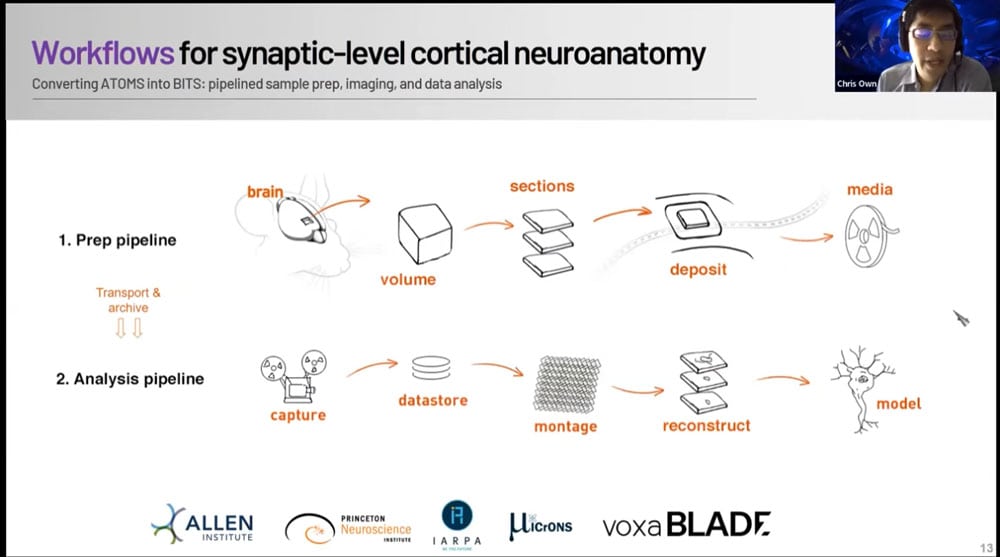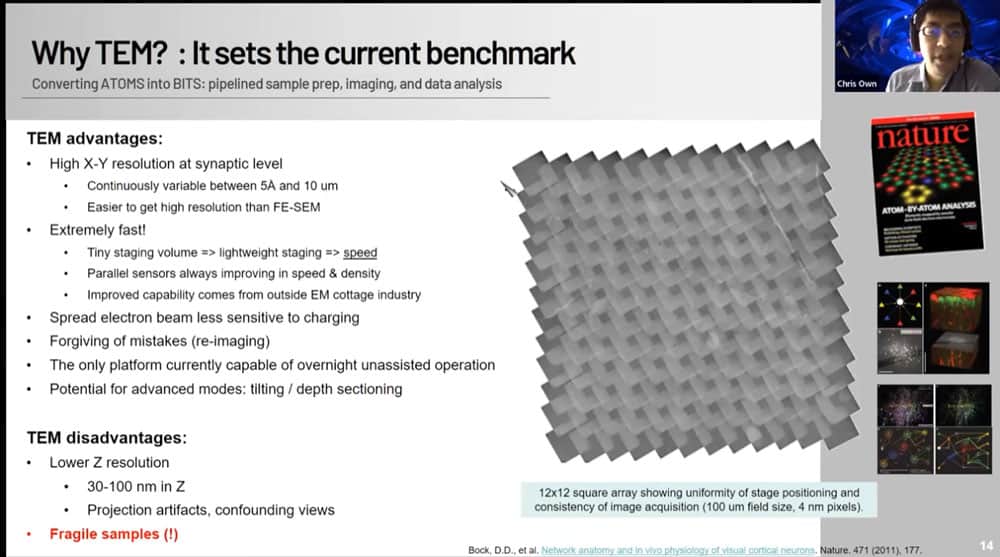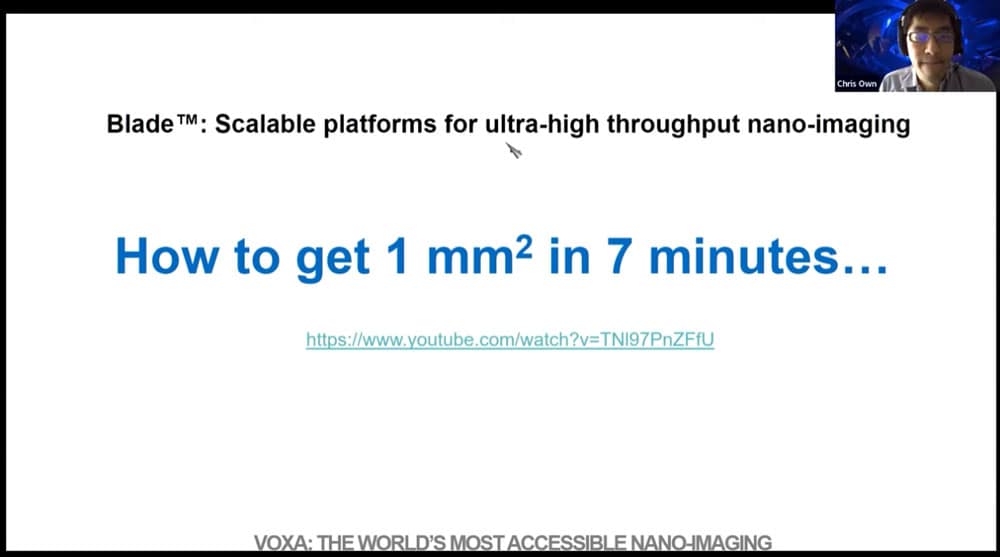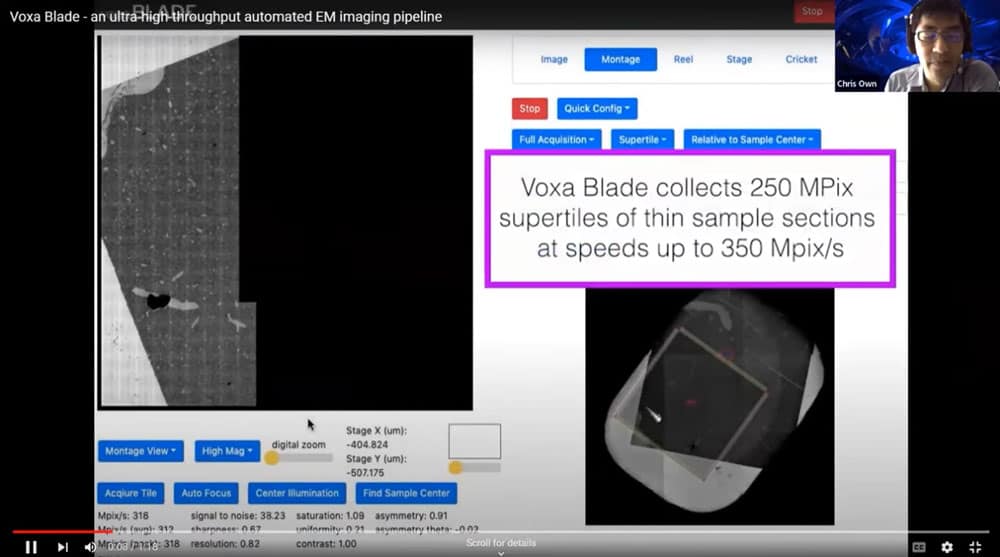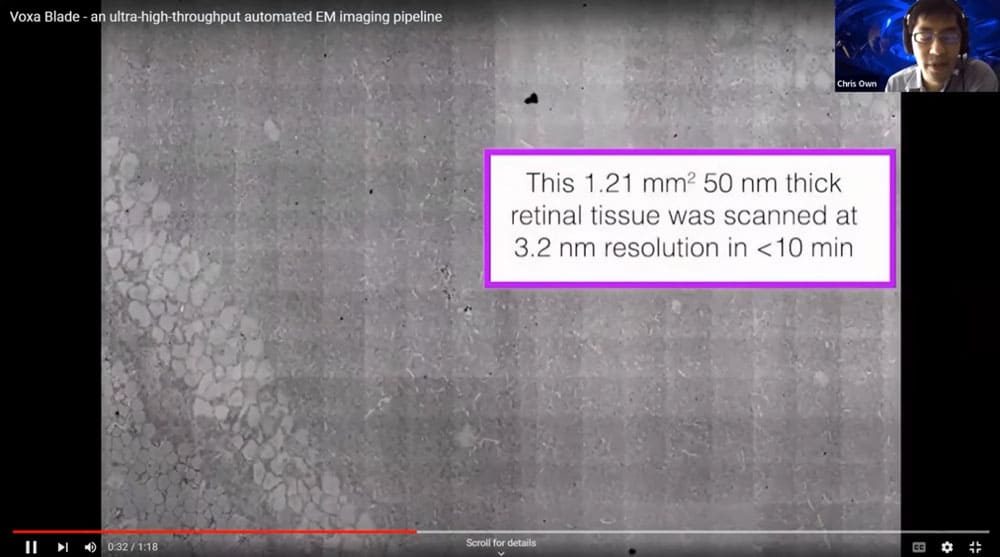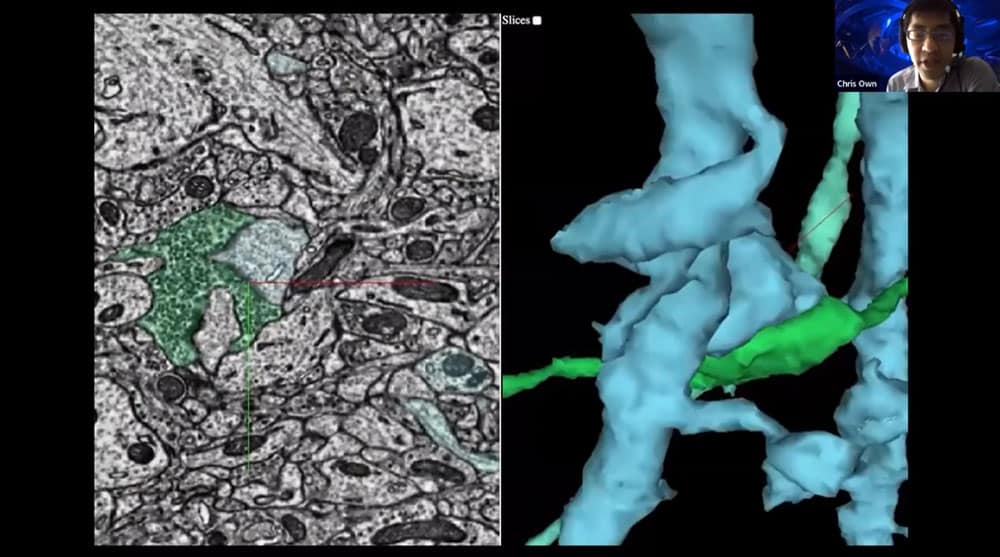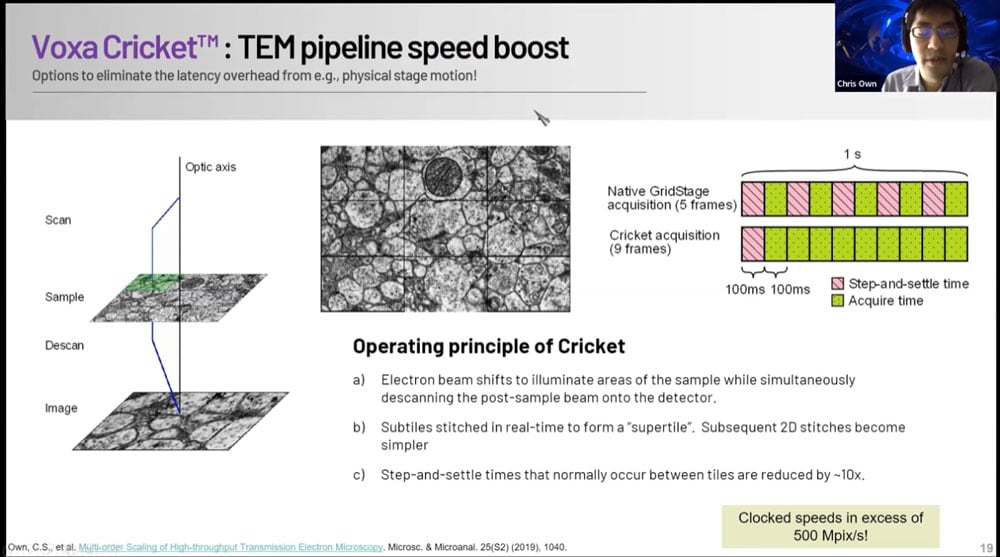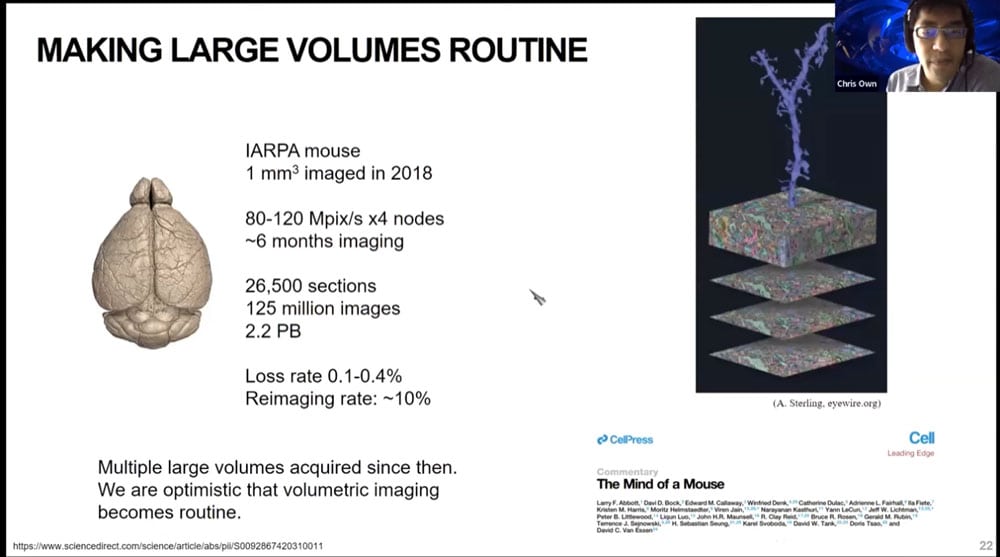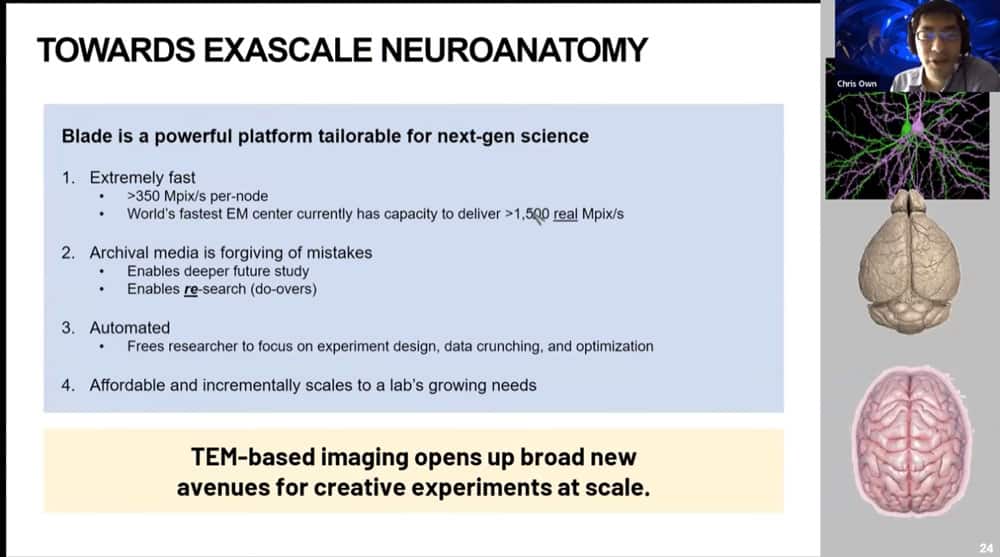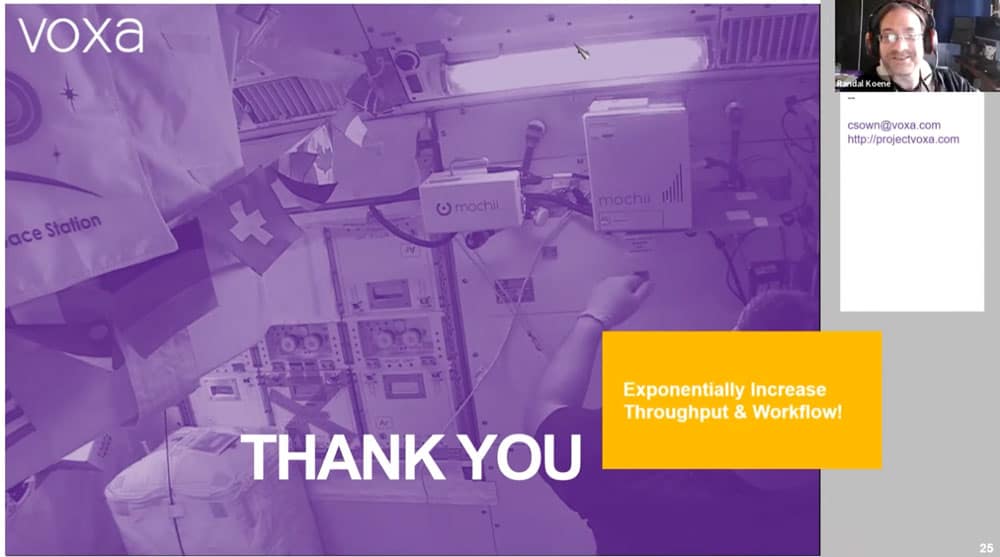Presenter

Chris Own, Voxa
Chris is an expert in analytical instrument design and development, with specialties in advanced imaging systems and science instruments, ranging from atomic-resolution structural imaging to portable charged-particle based analyzers…
Summary:
Brain mapping requires scaleable platforms for ultra-high throughput nano-imaging. Chris Own is the founder at Voxa, which specializes in advanced instruments for mapping the brain. His company produced the first portable scanning electron microscope, and then sent that microscope into space where it resides on the ISS.
There has been a lot of work improving resolution of imaging, but not as much work on the speed. Own’s company has developed a transmission electron microscope capable of 500 samples per hour, with 350 Mpix/s sample rate. The resolution can reach 1 nm and detects organelles, synapses, and vesicles. The sheer density of the information being gathered by these new processes requires machine learning and AI to process. The use of TEM instead of SEM was a choice based on scaleability – it is extremely fast, forgiving of mistakes, and can run overnight without supervision.
New methods for microscope stage management have led to even faster scan rates, above 500 Mpix/s of sustained rate. Now attention is focused on making large volumes routine and scaling up to a mouse brain.
Challenges:
Subsectioning the brain – We need to figure out the best way to subsection a brain for imaging
Whole brain imaging – Nematode, fruit fly (.08 mm³), and zebrafish (1.7 mm³) brains are within current capability to image. We need to figure out how to image a whole mouse brain (450 mm³), which is 70 million neurons compared to the zebrafish’s 10 million. The moonshot here is to get to the point of doing full imaging of a human brain, which has over 1000 times the number of neurons as a mouse. Such an imaging project would require dramatically more advanced technology than what we have right now.
